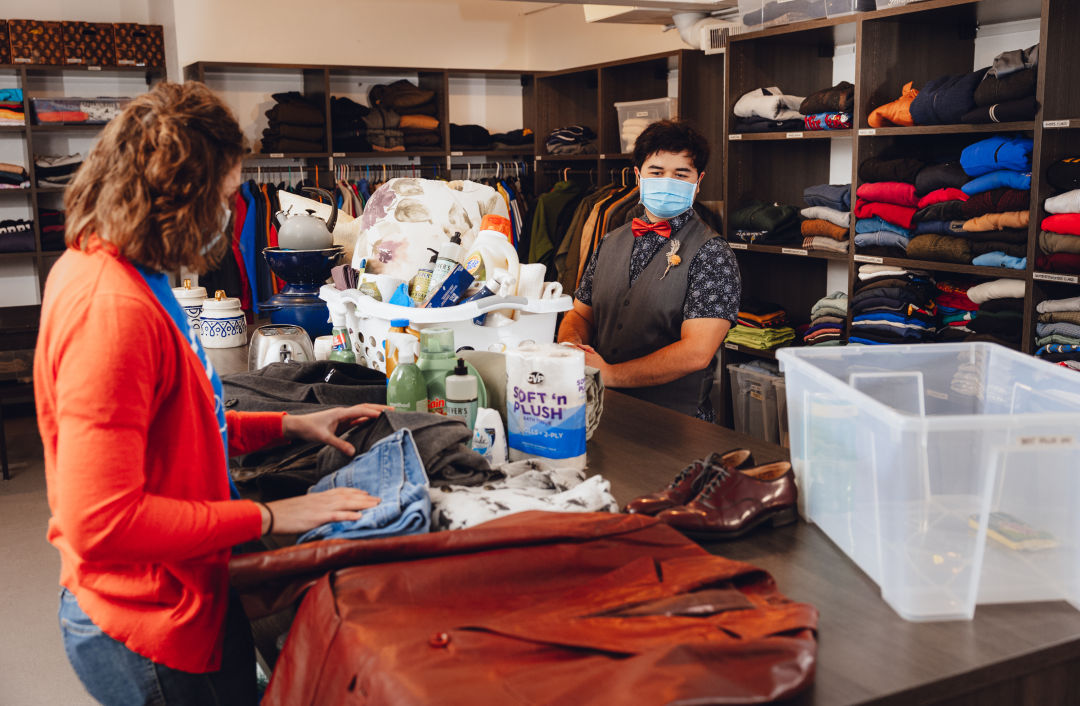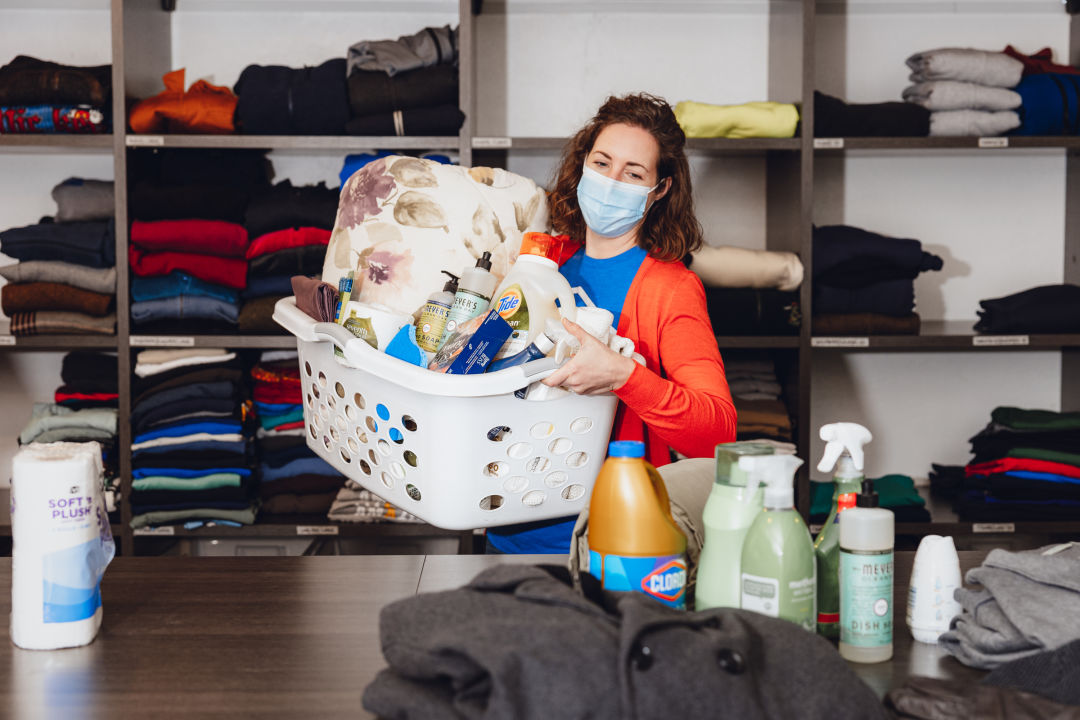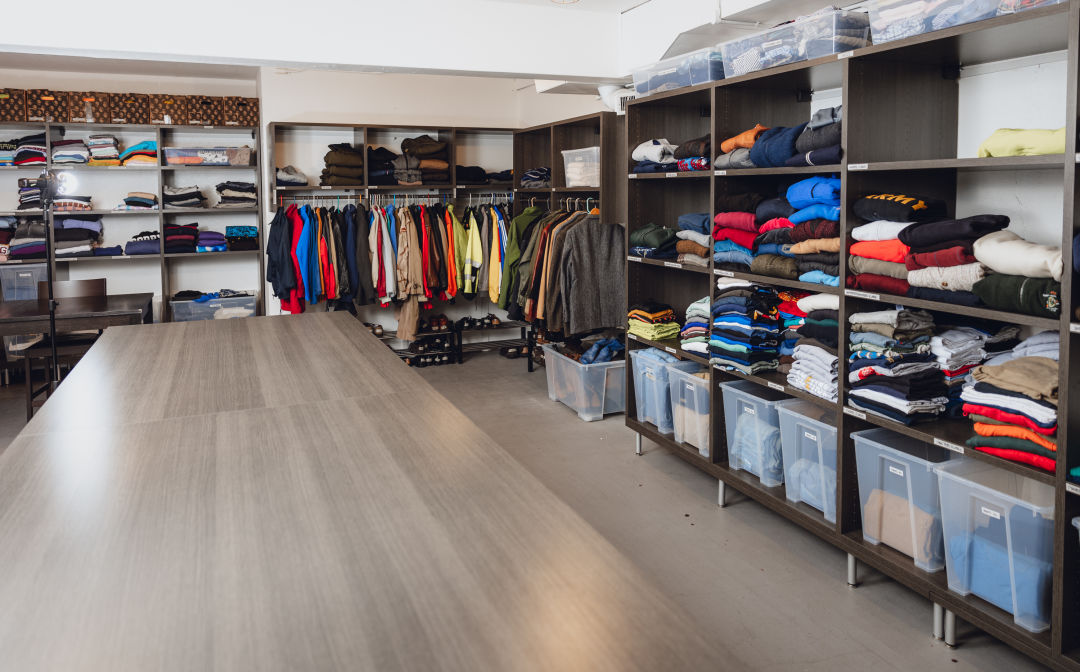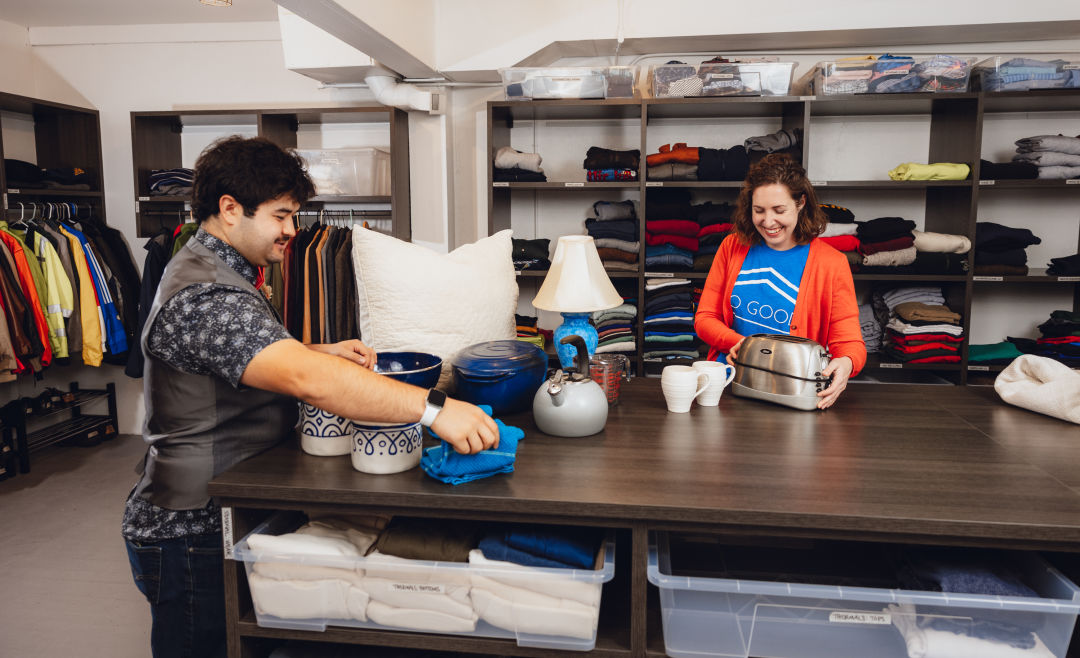Organizing a Fresh Start for Houseless Veterans

Workers with Do Good Multnomah assemble packages of essentials for veterans transitioning from the streets into housing.
Image: Tom Cook
Every night in Portland, there are more than 400 veterans outside on the streets, left to fend for themselves—an appalling reality, considering how they’ve all put their lives on the line for our country. Sure, there are emergency shelters that offer a moment’s respite, but oftentime the virtues that those veterans exemplified through their service can actually be an obstacle to them truly getting back on their feet. Do Good Multnomah is striving to change that.
“A lot of veterans, because of the culture of the military, are very self-reliant,” explains Joshua Fleming, a program manager with the nonprofit. “So as those service systems get overloaded, veterans self-select to remove themselves, because they would rather sleep out in the cold than have somebody else—maybe a child, a teenager, or a woman—do so.”
For six years, Do Good has grown its support services and ambitions, utilizing a three-step, Housing First model that provides emergency shelter, transitional programming, and permanent supportive housing. Fleming adds, “We really believe that we’re not just performing the task of taking a person and putting them in a shelter, but we’re actually engaging them in rehabilitating their life from a situation that’s less than desirable to something that they can be proud of and excited about.”

Each package put together by Do Good Multnomah aims to facilitate a smooth transition to new housing.
Image: Tom Cook
When veterans ultimately move into their own housing, Do Good is able to provide them with essentials such as clothing, dishware, and furniture to make their new living space truly feel like a home. But in the past, when community members graciously donated these materials, it presented a logistical problem for Do Good: storage areas would fill up with disheveled boxes, limiting their capacity and capability to benefit veteran clients. So when the nonprofit acquired a new building for its resource center, the Do Good team needed some help of its own.
Locally owned and operated, California Closets of Oregon has always shown a strong investment in community outreach, and along with other colleagues, Sales and Design Manager Brenda Savaria jumped at the opportunity to, well, do some good.

Organizational specialists at California Closets of Oregon gave their time to install efficient storage solutions tailored to Do Good Multnomah's mission.
Image: Tom Cook
“We walked into a room full of items, piles of clothes, and other things that they obviously couldn’t see,” Savaria says. “We collaborated on the needs assessment, based on how they’re going to use the space, while also giving them the flexibility to move things around in the future.” Fifteen California Closets employees then came in on their day off to do the install, creating an expansive space with ample shelving, storage bins, hanging racks, and work surfaces.
For Do Good, it was a game changer. “What it allows us to do is effectively use the donations that are coming in,” says Community Partnerships Manager Lisa Horness. “If we do not know what we have, we cannot share it with our participants and program sites.”
Now, articles of clothing are sorted by size, style, and type. There’s room for multiple couches, numerous sets of cutlery, pots and pans, and more. It’s much easier to peruse the clothing closet and resource center to retrieve and deliver these important goods. Program managers can communicate with veterans and help them fill out an order form where they can make requests for specific things that they may need.

"It’s more than just giving someone the bare minimums and necessities, but something that actually suits them, their personality and style, and makes them feel like an individual,” says Do Good Multnomah's Lisa Horness.
Image: Tom Cook
“To be able to give participants items that maybe they would select for themselves—it’s more than just giving someone the bare minimums and necessities, but something that actually suits them, their personality and style, and makes them feel like an individual,” Horness says. “It makes them feel seen and heard in a way that maybe they haven’t been in a while.”
As an ongoing partner, California Closets, in collaboration with Home First Development, will install 55 additional closets at Do Good’s Findley Commons in Southeast Portland, which opens at the end of the year. “It’s so important just for people’s mental health to have organized spaces in their home,” says Savaria.
Do Good’s Housing First model emphasizes getting houseless persons into a stable setting first, so that they can then address their barriers and work on employment, mental health, or addiction issues. It is setting the bar as an effective and, most importantly, lasting solution to Portland’s houselessness crisis. This year, for the first time, Do Good Multnomah has been included on Willamette Week’s Giving Guide, where those interested in contributing can make donations that will directly impact this vital programming.
“One of the greatest moments of my job is helping an individual move into their new home, especially when that’s jumping on a bus from the emergency shelter that they slept in last night, knowing that today’s the day that they’re going to get their key and go into their home. That’s an incredibly emotional process,” says Fleming. “We just had a veteran pass away in my program. On one hand his passing is sad for all of us; however, it’s also incredibly powerful to know that he got to pass away in a home that was uniquely his and not out on the streets.
“It's also impactful knowing that everything that he received from our organization served him for the rest of his life, instead of just one moment,” he adds. “He had those things, and they made an ongoing, daily difference. It’s not just about giving them a single item; it's an investment in them establishing their life.”
---
Do Good Multnomah
dogoodmultnomah.org




